Installing on Windows
Installation on Windows
- Download SearchBlox 10.7 for Windows.
- Right-click the
searchblox_windows64file and run as Administrator. Install4j will set up the SearchBlox wizard and start the process for SearchBlox installation.
SearchBlox Installation Wizard starts up.
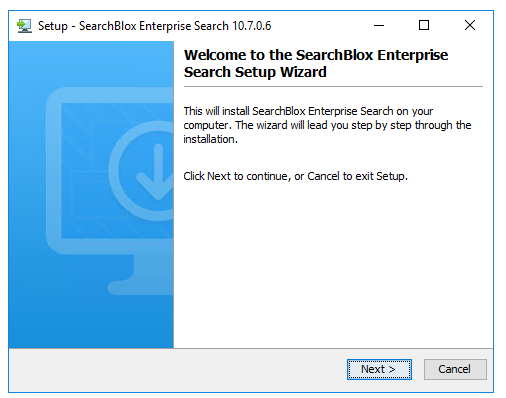
Choose the SearchBlox installation directory.
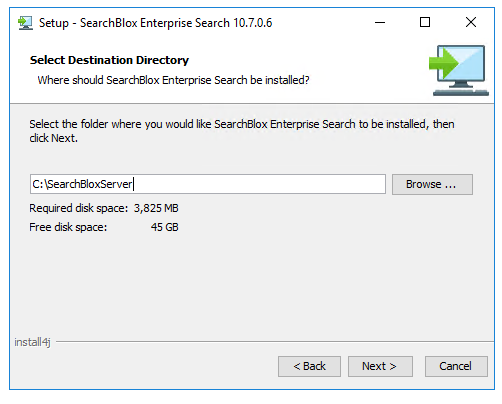
Chooses the SearchBlox startup shortcut by default.
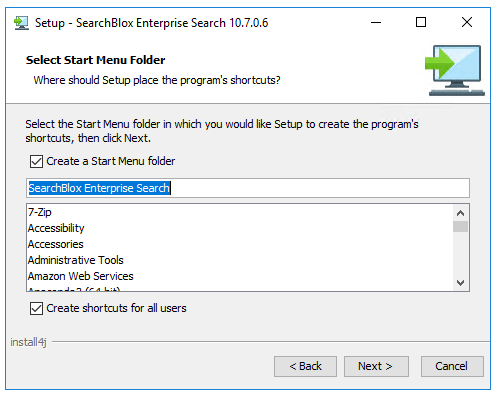
SearchBlox installation in progress.
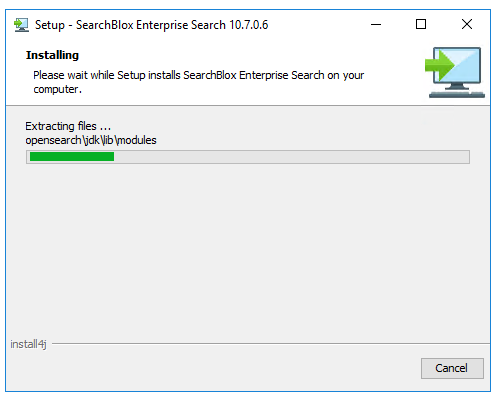
SearchBlox installation is complete.
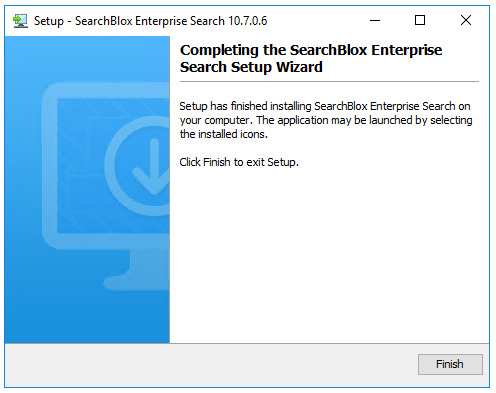
- The installer will install SearchBlox along with Elasticsearch and Analytics server for this application.
Prerequisites
- After installation please set
JAVA_HOMEand environment path variable for Java.
Please Note
If there are other Java versions installed in the system, please remove the references from the path variable.
To set the environment variable
- Right-click on My Computer, select Properties and click Advanced System Settings.
- On the Advanced tab, select Environment Variables.
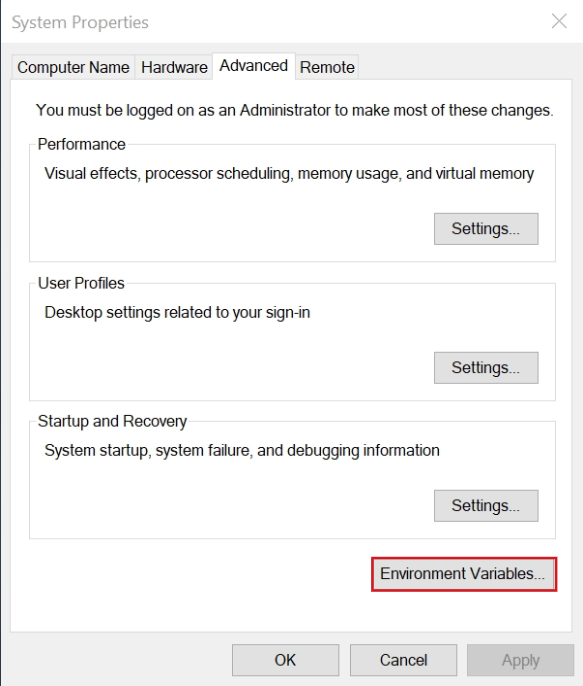
- Create a new System Variable
JAVA_HOMEwith valueC:\SearchBloxServer\jre
NOTE
- If SearchBlox is installed on D drive then JAVA_HOME value will be
D:\SearchBloxServer\jre
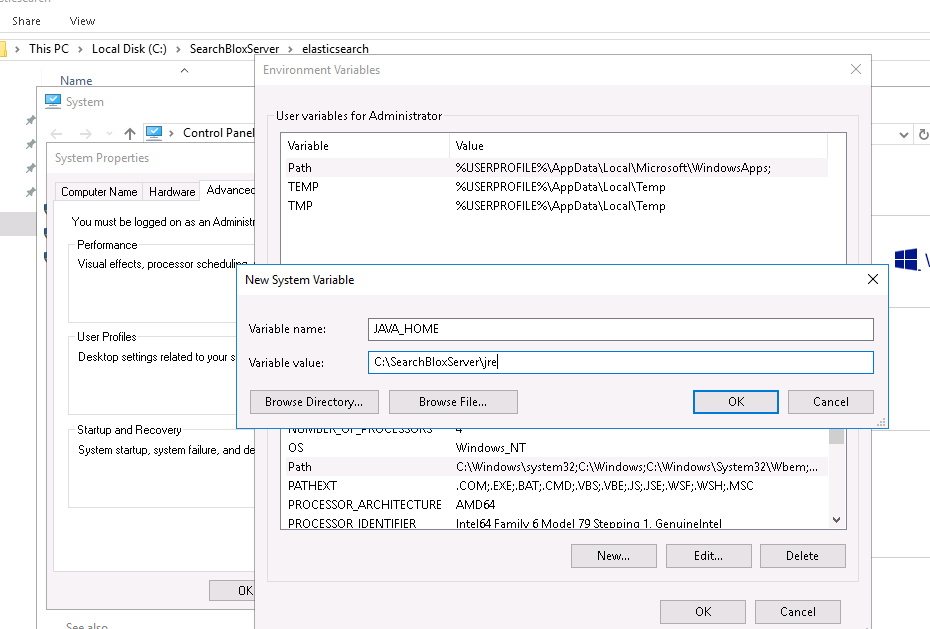
- Select
Pathunder System Variable and add%JAVA_HOME%\binas a new path.
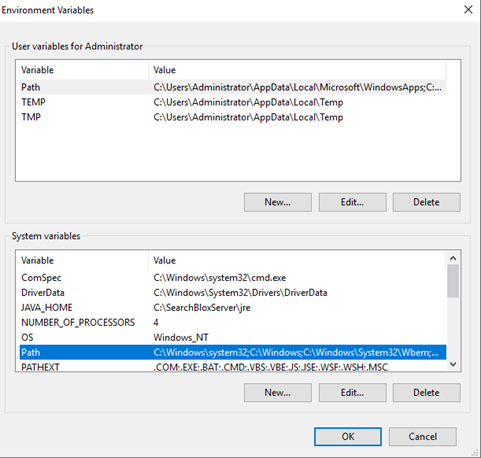
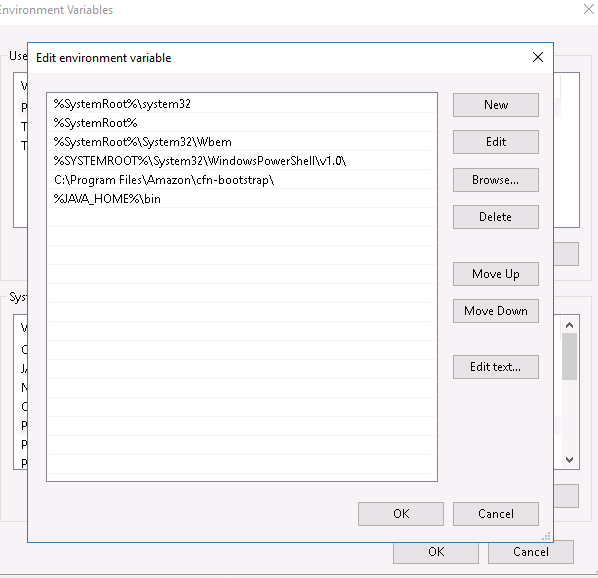
- Verify if Java is installed correctly by running the command:
java -version
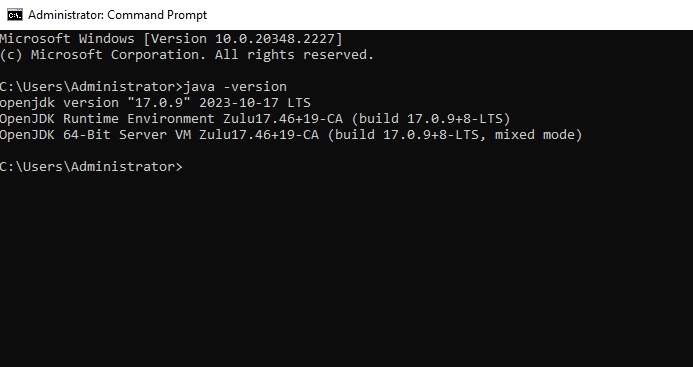
Start SearchBlox Service
- Go to the
C:\SearchBloxServer\servicefolder within the SearchBlox installation. - Right-click the
install-servicefile and run as Administrator. This will install the service.
- You can start the SearchBlox service manually from the Control Panel > System and Security > Administrative Tools> Services.
- To Start SearchBlox Service, Right-click the
Searchblox Enterprise Searchand Clickstart.
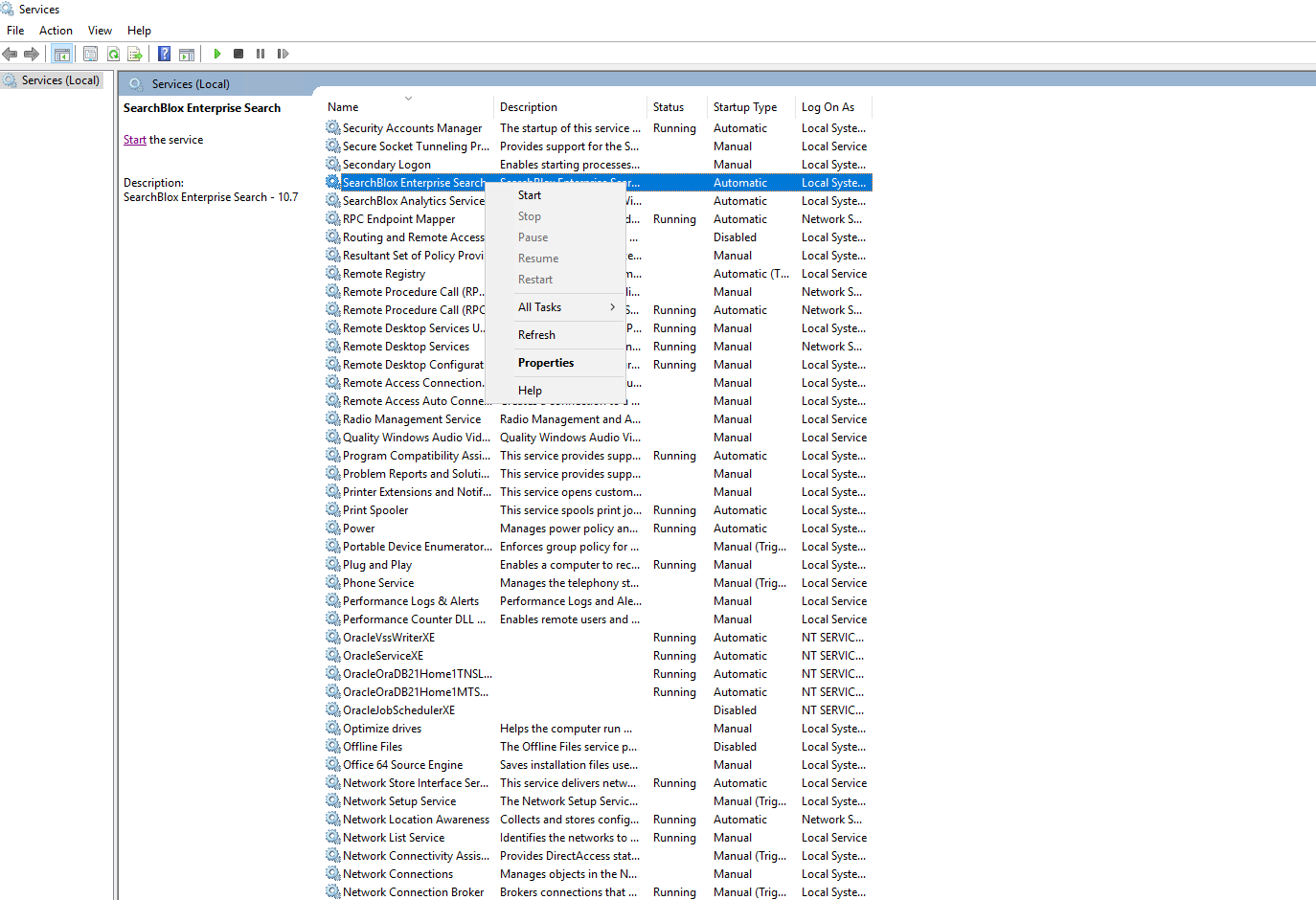
Note
- Restart the Windows Server if you are not able to start SearchBlox.
- Check if Elasticsearch service is running.
- SearchBlox service will start automatically upon server restart.
- After you start the service, wait for 30 seconds then open the link: https://localhost:8443/console/ in your browser to access the SearchBlox Admin Console.
- You will be taken to the License Agreement page. Click on “I AGREE” at the bottom of the page.
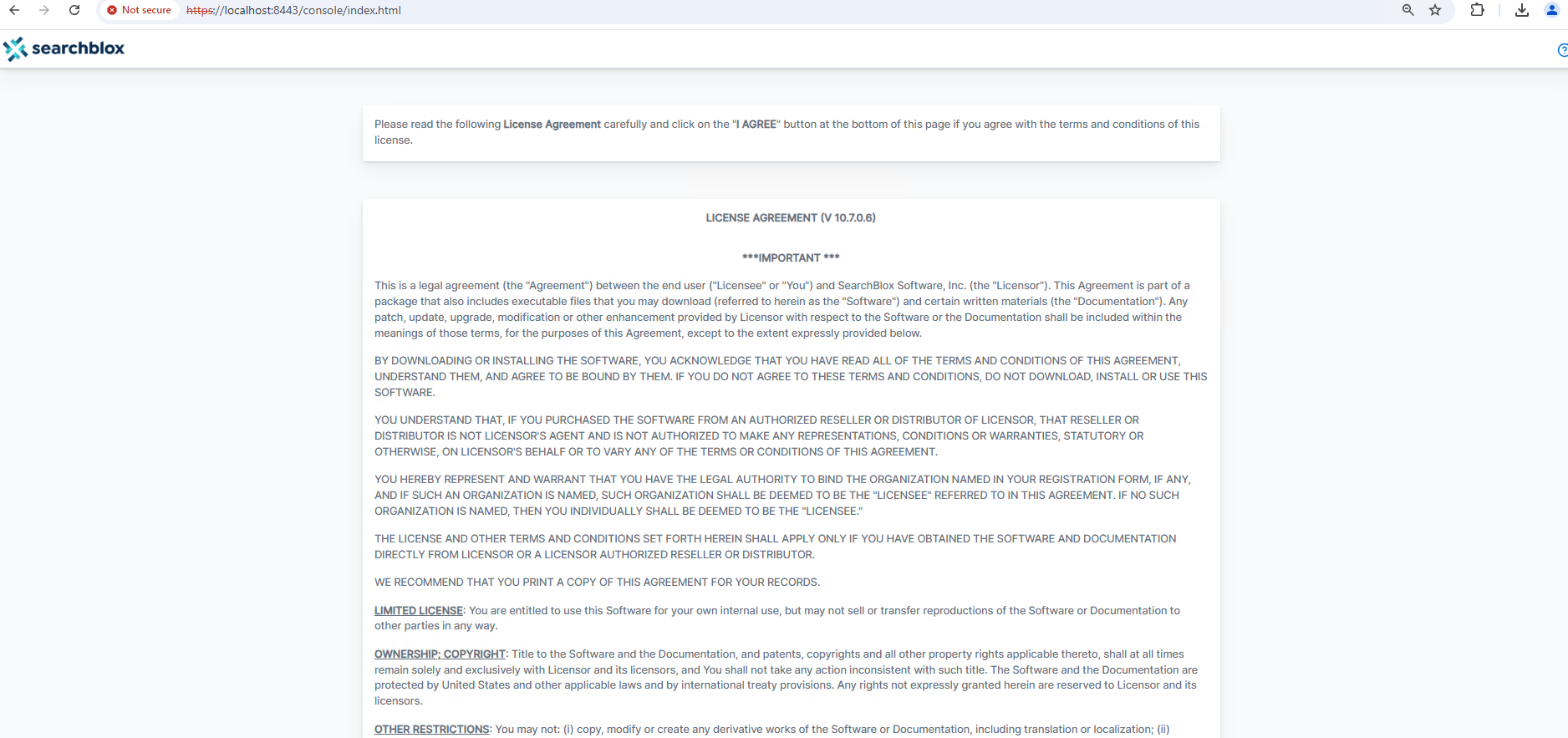
- You will be taken to Create a Super Admin Create Password Page.
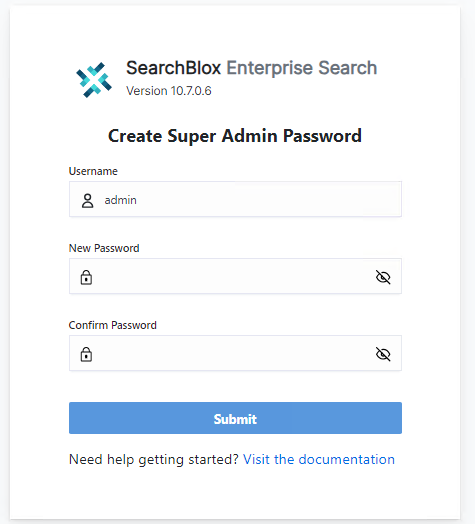
Use the Super Admin password to log in and access the dashboard page.
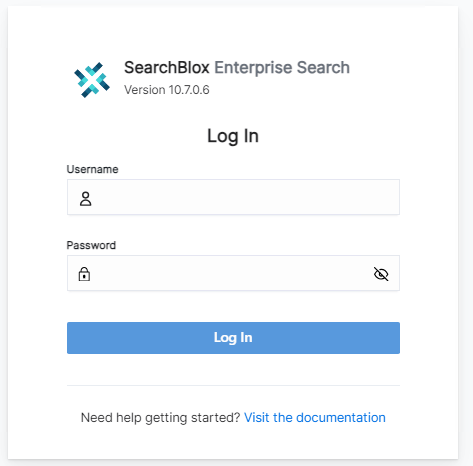
Verify Installation
- You can verify if SearchBlox has started successfully by viewing the status.log file in the
C:\SearchBloxServer\webapps\ROOT\logsfolder. - Please confirm the message "SearchBlox Started" is shown in the log.
- In case of any errors, this log will provide additional information for troubleshooting.
You can see the SearchBlox Account details by clicking the Avatar Icon.
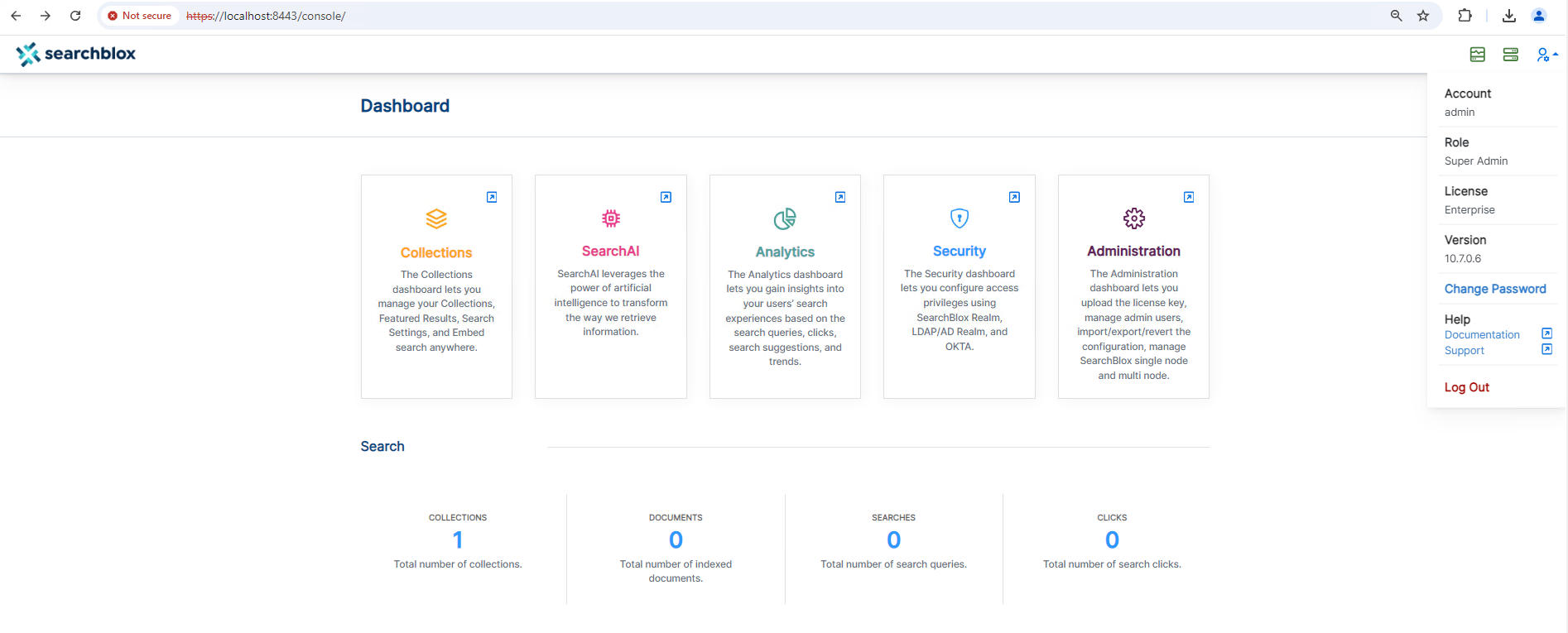
Note
- To learn about Troubleshooting visit: Logging and Troubleshooting
- To learn about using SearchBlox Admin Console visit: Overview of SearchBlox
- To learn about tuning for high-performance visit: Installation Tuning
Change SearchBlox Server Port
- SearchBlox Server runs on port 8443 by default. For secure ports refer Secure Ports used by SearchBlox section on Requirements
You can change the port by following the steps as shown here:
- Stop SearchBlox service
- Update
C:\SearchBloxServer\start.d\https.inifile and add the below line to set the required port number:
jetty.ssl.port=443 - Save the https.ini file
- Start SearchBlox service
SearchBlox Installation on alternate drive or path
We recommend installing SearchBlox in the C:\ drive. Please follow the following steps if you wish to install SearchBlox on a different drive. For example, if you want to install in D:\ drive, follow the below steps:
- Download SearchBlox for Windows.
- Run the Installation Wizard and give the preferred installation path. By default, it will be
C:\SearchBloxServerchange it toD:\SearchBloxServer.
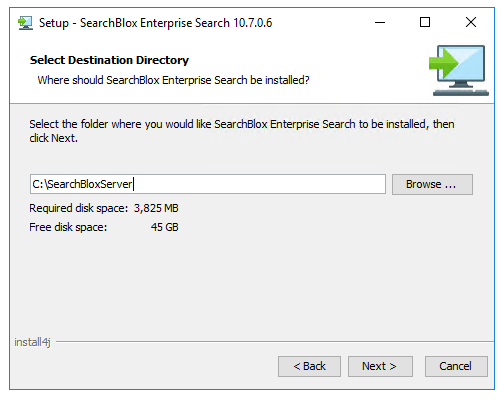
- For the next steps refer Installation on Windows section from step 3 and 4.
- Set the Java Environment variable for the location (example: D: drive or E: drive).
- To set the Java Environment variable follow the steps from Prerequisites section.
To update Elasticsearch/Analytics installation path:
- Go to
D:\SearchBloxServer\webapps\ROOT\WEB-INF. - In
searchblox.ymlfile, in the lines 7, change the value ofes.hometoD:\SearchBloxServer\opensearch.
# ======================== SearchBlox Configuration =========================
searchblox.deployment.type: onPrem
searchblox.elasticsearch.host: localhost
searchblox.elasticsearch.port: 9200
searchblox.elasticsearch.basic.username: xxxxxxxxxx
searchblox.elasticsearch.basic.password: xxxxxxxxxxx
es.home: D:\SearchBloxServer\opensearch
searchblox.refresh_interval: 4s
searchblox.shards: 1
searchblox.replicas: 0
searchblox.http.crawldepth: -1
searchblox.user.expiry: 30
http.lastmodified.header: SearchBlox-Last-modified
- Now save the searchblox.yml file.
- To Start the SearchBlox service, go to
D:\SearchBloxServer\serviceand follow the steps from the Start SearchBlox service section.
Uninstall SearchBlox
- To Stop the SearchBlox service. Go to Control Panel > System and Security > Administrative Tools> Services.
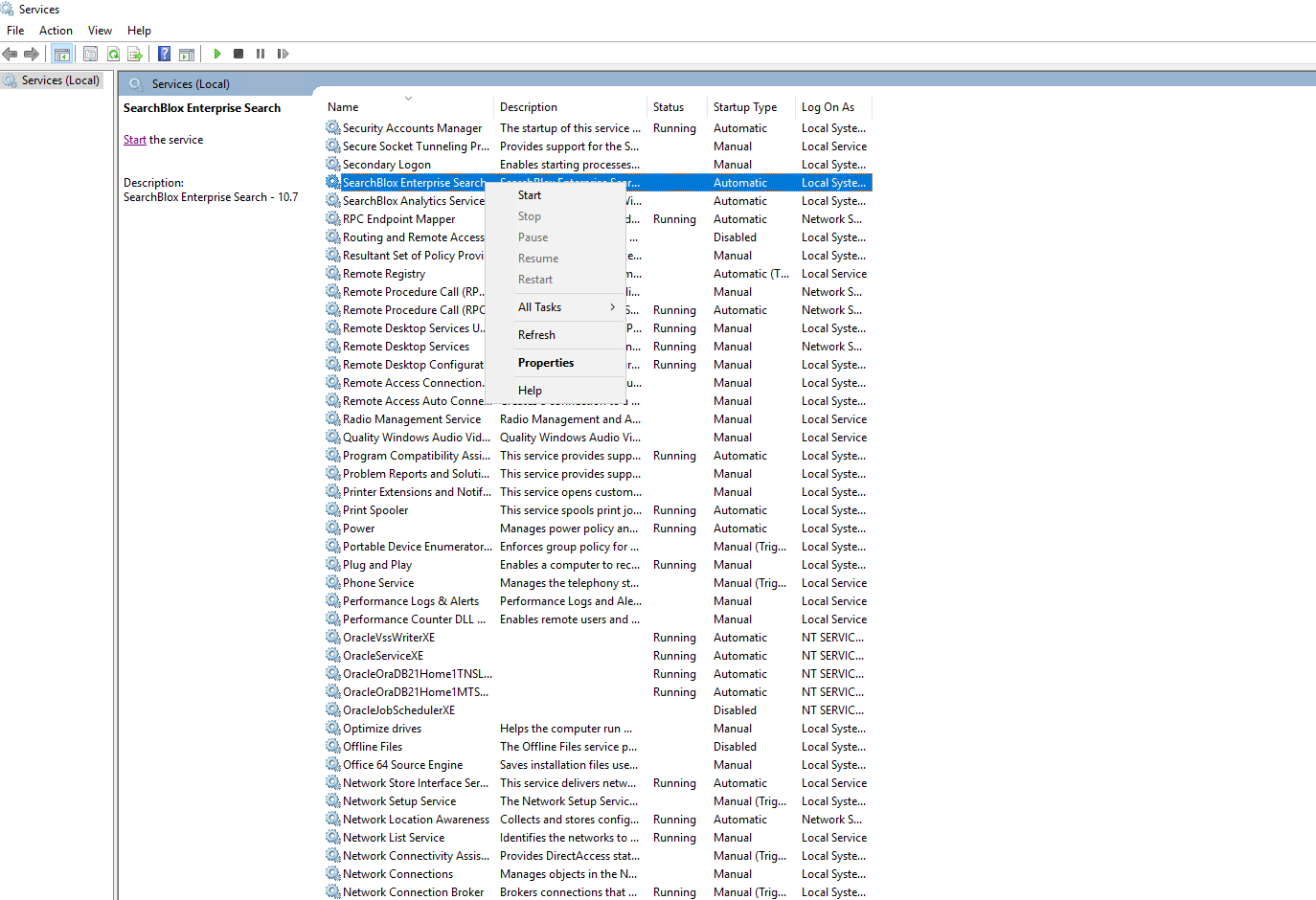
- Go to the
C:\SearchBloxServer\serviceand uninstall SearchBlox service by runninguninstall-serviceas administrator.
- Run SearchBlox uninstall.exe file from Installation Directory.
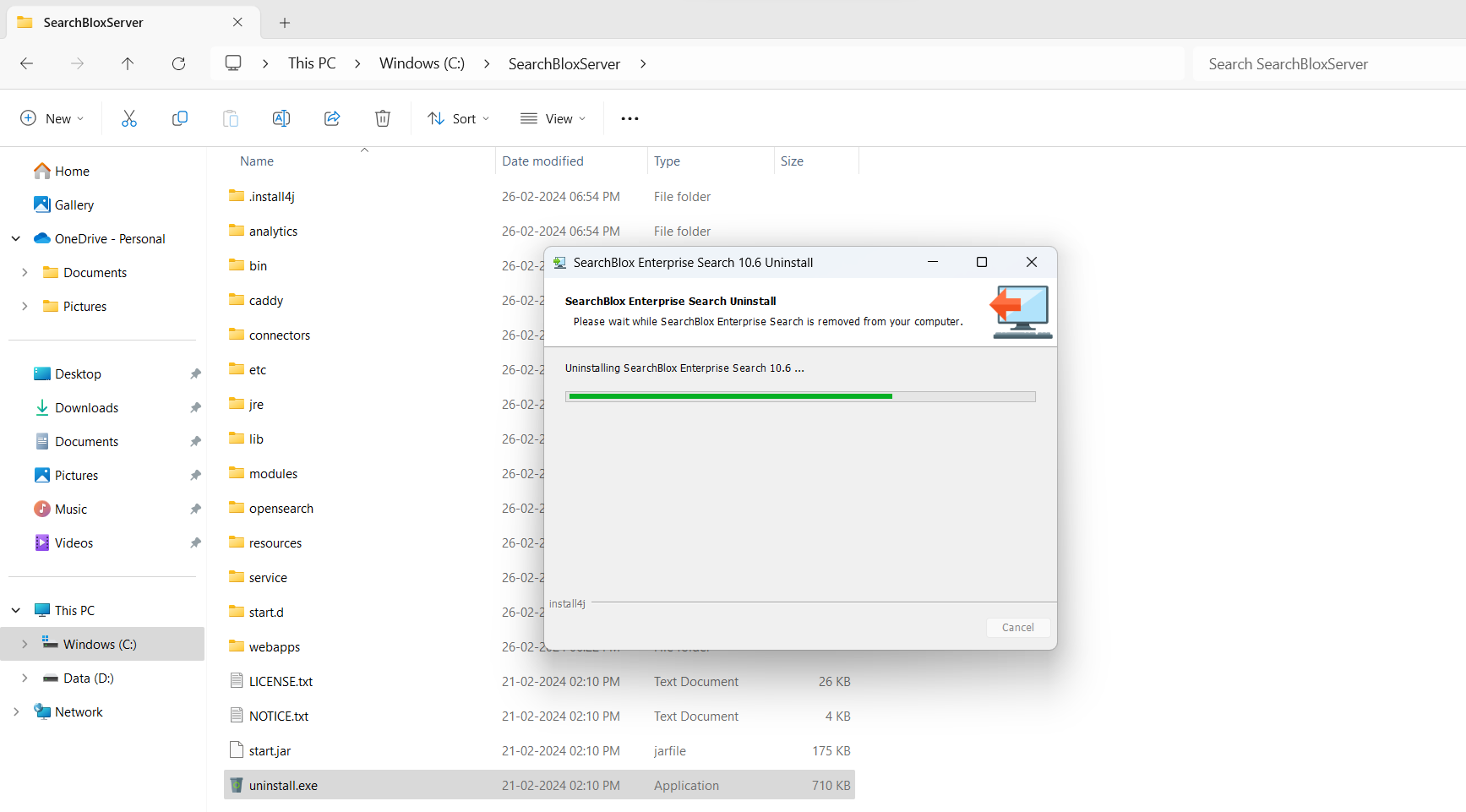
SearchBlox Uninstallation successful.
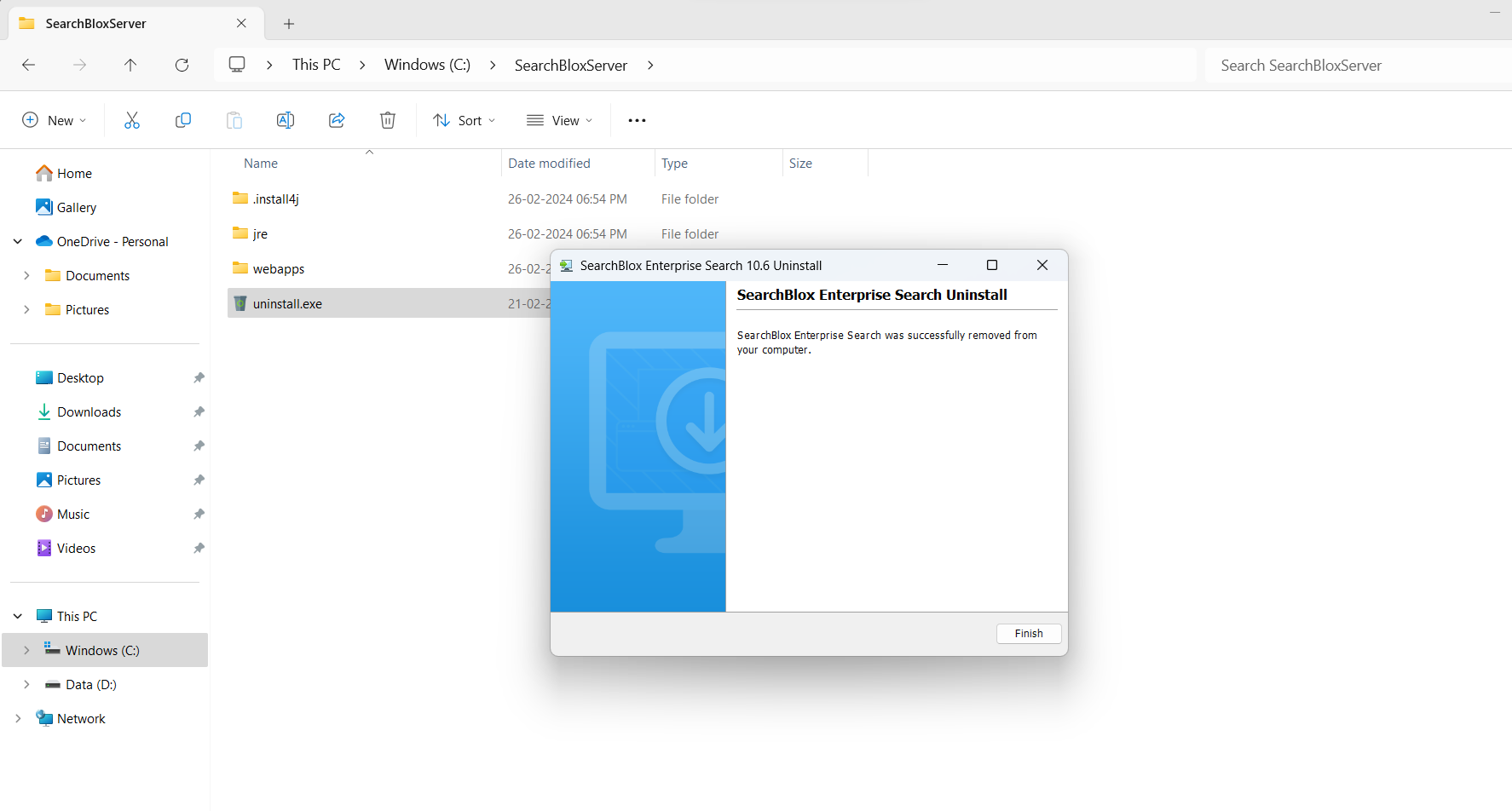
- Delete C:\SearchBloxServer folder for clean uninstall.
Note
After the uninstallation, it is required to restart the machine when prompted. This action will terminate all the existing background services if any.
Updated over 1 year ago
